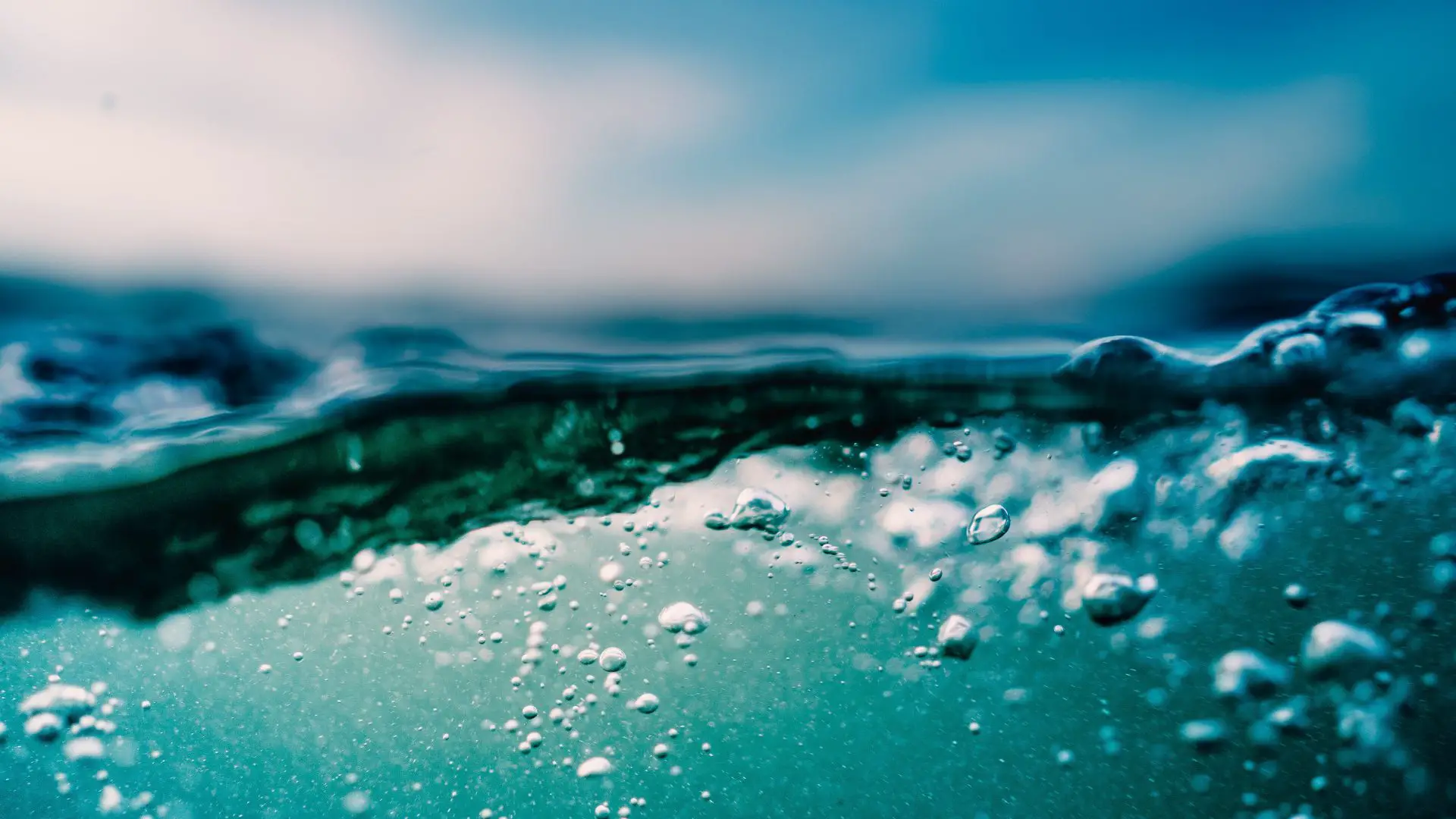Why is the Ocean Salty: Detailed Overview

We all know the sea is salty but do we know the answer to why is the ocean salty?
Ocean salt primarily comes from rocks on land and openings in the seafloor.
So let's get into why is the ocean salty!
Why Is The Ocean Salty?
The ocean is salty due to the accumulation of dissolved salts, primarily sodium chloride, from processes like rock weathering, volcanic activity, and mineral runoff.
Why is the Ocean Salty Video
What Causes The Ocean To Be Salty?
The sea's salinity is a result of intricate natural processes. Rainwater, slightly acidic, plays a pivotal role by eroding rocks on land, releasing ions that flow into rivers and ultimately reach the ocean.
Chloride and sodium, vital components of seawater, originate from these dissolved ions, significantly influencing the sea's saltiness.
Hydrothermal fluids from the seafloor contribute to this phenomenon as well. When ocean water seeps into cracks in the seafloor and encounters magma from Earth's core, chemical reactions occur.
The resulting heated water, enriched with minerals like iron and zinc, is released through seafloor vents, adding to the sea's mineral content.
In addition to underwater volcanic eruptions introducing minerals directly into the ocean, salt domes large deposits formed over geological timescales found around the Gulf of Mexico contribute steadily to the sea's overall salinity.
Why is the Dead Sea So salty?
The Dead Sea is exceptionally salty due to its high evaporation rate, minimal freshwater inflow, and a unique geological setting.
Nestled between Jordan and Israel, this landlocked sea has no outlet, causing water to evaporate, leaving behind concentrated minerals and salts.
The Jordan River, its primary water source, brings in minerals but carries little water out. As a result, the Dead Sea's salinity is much higher than that of regular seawater, creating an environment where floating effortlessly is remarkably easy due to the increased buoyancy.
Seawater vs. Fresh Water
Across the total amount of water on earth, distinguishing between seawater and freshwater involves understanding the origins of salt.
Three primary sources contribute to the salinity of seawater: the weathering of rocks on land, the influx of minerals from rivers, and hydrothermal fluids emerging from the seafloor. These processes collectively shape the distinct composition of saltwater compared to freshwater.
Ocean Salinity Levels
Salinity levels in the oceans vary based on several factors. Typically measured in parts per thousand (ppt), the average salinity of seawater is about 35 ppt.
Factors influencing salinity include temperature, evaporation, and precipitation. Salinity tends to be lower near the equator and poles and higher at mid-latitudes, showcasing the dynamic nature of the world's oceans.
Which Ocean Is The Saltiest?
The Atlantic Ocean is generally considered the saltiest among the world's oceans due to its extensive size and higher evaporation rates in certain regions.
Why is the Ocean Salty But Not Lakes or Rivers?
Oceans are salty because they lack natural outlets, allowing salts to accumulate over time, whereas lakes and rivers have continuous water outflow, preventing significant salt buildup.
What Is the Purpose of Salt in the Ocean?
Salt in the ocean serves various crucial purposes, including regulating the water's density, influencing ocean currents, and providing essential minerals for marine life.
Which Ocean Is Not Salt Water?
The Arctic Ocean, while having relatively lower salinity, is still considered saltwater, and there is no ocean that consists entirely of freshwater.
Summing It Up: What To Do Now
Now you know why is the ocean salty next time you swallow it! Next, do you know why the ocean is blue?
If your interested in learning more about surfing discover our many guides that will inform you on your surfing journey. Don't forget to follow us on Facebook & Instagram to stay informed on our amazing surf shots and stories shared from surf creators around the world!
Frequently Asked Questions
What causes the ocean to be salty?
The ocean is salty due to accumulated dissolved salts, primarily sodium chloride, from processes like rock weathering, volcanic activity, and mineral runoff.
Will the ocean ever not be salty?
Considering ongoing processes like rock weathering and mineral runoff, the ocean is likely to remain salty.
What is the saltiest sea in the world?
The Red Sea is the saltiest due to high evaporation rates and limited freshwater inflow.
Why is the ocean salty but not the Great Lakes?
The ocean retains salt because it lacks a natural outlet, allowing salts to accumulate. The Great Lakes have outlets, preventing such accumulation.
Where does sea salt come from?
Sea salt comes from evaporated seawater, leaving behind salt crystals harvested for various purposes.
Can you drink sea water?
Drinking seawater is not advisable due to high salt concentrations, leading to dehydration rather than hydration.


